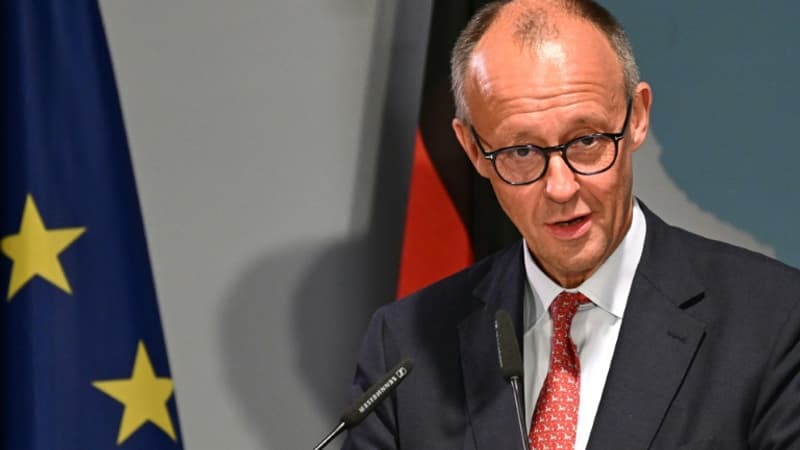The German Chancellor, Friedrich Merz, will receive on Thursday, October 9, the key players of an automobile industry in crisis and seeking to lift the planned ban on thermal engines in the EU, failing to resist Chinese competition in electric mobility. The head of Government and several ministers will talk with actors in the sector, manufacturers, suppliers, unions, lobbyists and presidents of regions that are home to automotive bastions.
Almost weekly announcements of falling profits, job cuts and restructuring highlight the fragility of the German economic model, long driven by global demand and cheap energy imported from Russia. Industrial production fell again last month, especially in the automobile sector (-18.5%), raising fears of a new recession.
Between delays in quality, cheaper Chinese electric models and insufficient infrastructure, the crisis affects large manufacturers -Volkswagen, Audi, BMW, Mercedes-Benz-, but also large suppliers such as Bosch or ZF, as well as the entire network of SME subcontractors that constitute the backbone of the sector. The sector lost more than 50,000 jobs in one year out of a total of around 800,000, according to EY.
In addition to Chinese competition, German cars are suffering from rising energy costs since the Russian invasion of Ukraine, falling global demand and, most recently, 15% US customs tariffs imposed on European cars.
Tensions around electric cars
Among the central topics of the “summit” convened by Friedrich Merz is the ban planned by the EU on the marketing of new thermal engines from 2035, a measure aimed at reducing greenhouse gas emissions and promoting the development of electric mobility.
Many European manufacturers would like this deadline to be lifted in order to adapt to an electrical transition considered slower than expected. Friedrich Merz advocated on Monday for its abandonment, considering the measure “wrong.” Enough to rekindle tensions within his coalition with the Social Democrats of the SPD, who want to keep it. The EU has promised to comment on the matter soon.
According to several German media, a compromise could be proposed to Brussels aimed at relaxing the ban without eliminating it completely. The expansion of certain thermal vehicles equipped with range extenders or plug-in hybrids beyond 2035 “will ensure the competitiveness of our industry and thousands of jobs in Europe,” said Stefan Hartung, CEO of Bosch, the world’s leading automotive supplier, on Wednesday.
“Fictional solutions”
“False” solutions for the NGO Transport & Environment (T&E), which urged the Government on Wednesday to “respect European objectives” on CO2. The Minister of Finance, the Social Democrat Lars Klingbeil, wants to encourage Germans to opt for electricity by extending for five years the tax advantages that will expire at the beginning of 2026. As for the German Greens, they constantly insist that electric mobility is the technology of the future and that an expansion of heat engines will only widen Germany’s gap with China.
“What we need in Germany is not another industrial summit, but a program that influences the costs and competitiveness of the country,” says Ferdinand Dudenhöffer, an expert at the Center for Automotive Research (CAR) in Bochum. According to a study by this center published on Wednesday, the difference between the price of electric and thermal cars has never been so small, so any questioning of the ban on combustion engines from 2035 would be unjustified.
Source: BFM TV


